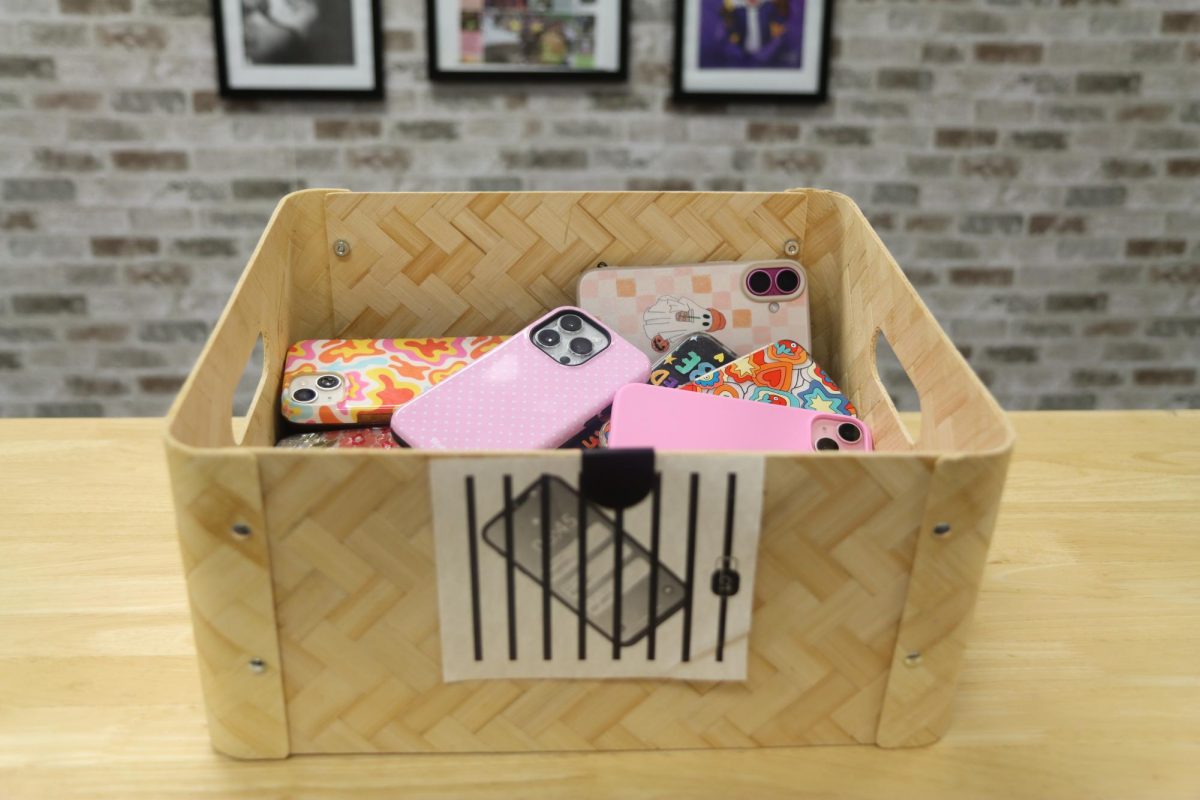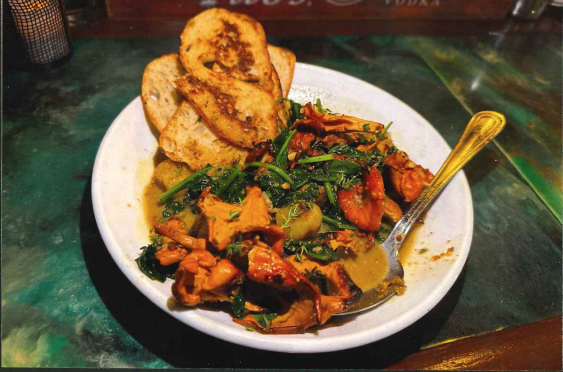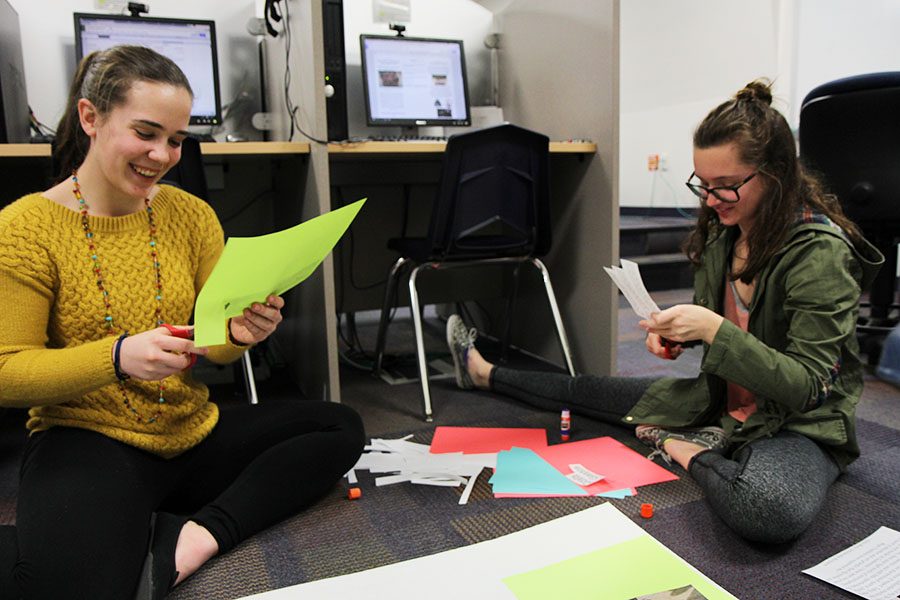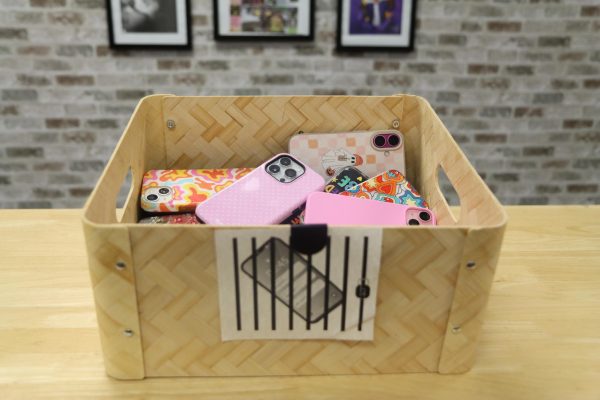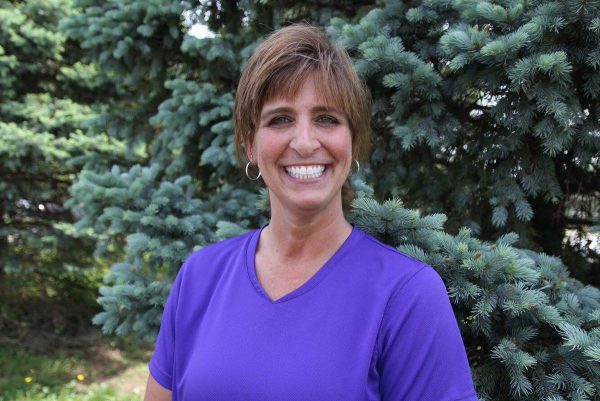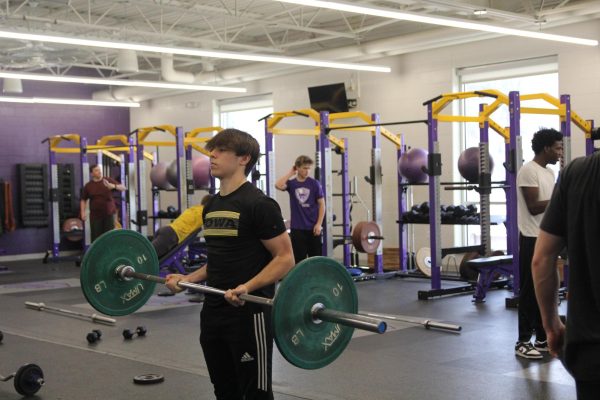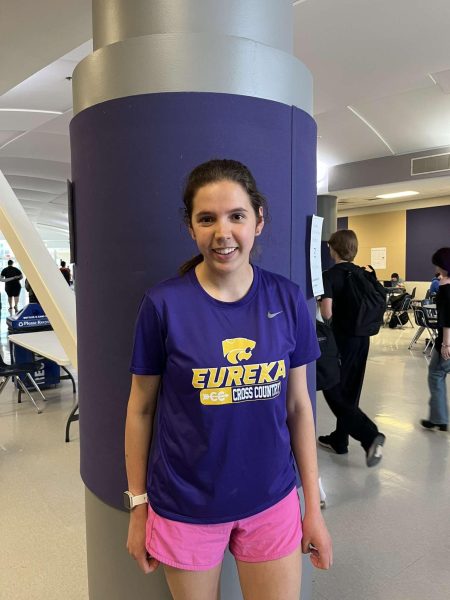Cutting the ignorance
Jamie Pack and Raegan Holland, Spanish 4 students, chat as they cut out paper for the poster they presented at the Poverty Awareness Fair in the library, March 8.
According to a poll conducted by the Morning Consult, one in three Americans think Obamacare and the Affordable Care Act are two different things.
On the other hand, a study conducted by the McCormick Tribune Freedom Museum showed that only one-fourth of Americans can name at least two of the five freedoms granted by the First Amendment and only 30 percent know the legislative branch declares war.
If Americans don’t know what’s going on in their own country, it’s unlikely that they know what’s going on in the rest of the world.
“Sometimes we don’t necessarily sympathize with people who have nothing, comparatively,” Will Crane (11) said. “If we at EHS can learn about it and understand what their position is in life, we can make it easier to help them and spread the word.”
To combat this ignorance, Spanish 4 classes gave presentations at the Poverty Awareness Fair, March 8, about what perpetuates global poverty.
“We wanted to find something that would engage students and help them do an activity that would be a real-world experience for them,” Julie Weitzel, Spanish, said. “We want them to have an opportunity to have perspectives that aren’t their own.”
Weitzel, Jenni Highfill and Kim Lackey presented Living on One’s “Change” series to their Spanish 4 classes. The series specifically focused on six aspects of global poverty as seen in Peña Blanca, a small rural village in Guatemala. In Guatemala, 50 percent of all people live in poverty.
- Access to clean water
- Maintaining a nutritious diet
- The effects of natural disasters
- The difficulty of finding a job
- Access to finances
- Access to quality education
About five years ago, Lackey found the “Change” series through a facebook link.
“I was really impressed by it,” Lackey said. “I was so interested that I immediately said I wanted to create a whole unit based on this for our students.”
For two weeks, the class homework was to watch one video in the series at a time and take a small assessment over it to participate in Spanish-speaking discussion the next day about the video and its lesson.
“This unit made me appreciate all the things in my life,” Charlotte Bowie, AP Spanish 5 student, said. “It taught me not to take things for granted like most people do.”
Using the knowledge from the videos and additional in-class research, students gave presentations at the Poverty Awareness Fair. Individuals or pairs could research one of the following topics to prepare a brochure and trifold poster for their presentation.
- Lack of clean drinking water
- The effects of not having a toilet
- Lack of access to nutritious food
- Lack of aid after natural disasters
- Lack of unemployment opportunities
- Lack of access to banking/loans/financing
- Lack of access to quality education
- Language barrier for the rural poor
- Reproductive health and prenatal care
- Sexual exploitation/human trafficking
- Lack of access to health services
- Need for sustainable farming and agricultural practices
- Unequal distribution of land
- Lack of infrastructure to encourage urbanization
- Modern day slavery/forced labor
- Refugee crisis
After reading about the statistics about it, Brittany Beebe and Abby Burton decided to study prenatal care and reproductive education.
“We saw that there’s a lot of unplanned pregnancies, like abortions and maternal deaths,” Burton said. “We thought it was a significant problem because they don’t have people in developing areas to talk to them about it.”
After learning about a few of the topics through the “Change” series, finding a connection to one wasn’t hard. On the other hand, choosing just one from the large list of topics could pose a challenge.
“It was between human trafficking and the lack of toilets,” Mikey Ward, Spanish 4 student, said. “But I don’t think I could give a serious speech about toilets, so I decided to tackle human trafficking.”
Three days worth of in-class research went into a brochure that explained the causes, effects and solutions to the problem they researched as well as ways the average person could help.
To add a visual element to the overall project, students spent an additional day in class putting their research on large tri-fold posters that were displayed at the fair.
The students gave two overall presentations. The first presentation, given in Spanish, was for classmates, March 7. The second presentation, given in English in the library, was for the community, March 8.
Taking time from their days to learn about these issues, students from other classes listened and occasionally took physical notes on what they learned.
“The project opened my eyes to the amount of global poverty there is,” Abby Baechle, AP Spanish 5 student, said. “You don’t really get exposure to that when you live in Eureka your whole life.”
The “Change” series effectively painted this picture.
Poor, indigenous youth drank water from a dirty source because there wasn’t any other place in walking distance to get it.
A middle-aged man struggled to find paid work around the village because a lack of literacy in Spanish prevented him from getting a job anywhere else.
Mothers permanently took their daughters out of school because there wasn’t enough money to buy their uniforms, supplies or to provide transportation.
The average person in the village lives on less than $1 a day.
Poverty is a pervasive global issue that often Spanish speakers in Latin America often see in their daily lives.
“One of our key goals for this unit is that students work on developing their cultural competence and their global competence,” Lackey said. “Part of learning another language is understanding other people and other situations that are different from our own and understanding other perspectives.”
The goal of this project is to inspire students to want to make a difference as they connect their studies to the real world. As students give their studies real-world value, the goal of the projects is for the students to feel compelled to want to make a difference.
“After I did the project last year, I got involved with a foundation that helps girls in impoverished countries to have sanitary products,” Baechle said. “It’s called Dignity Period. I’m still in contact with them today.”
Diving into global issues involves another dive into personal ideas and values.
“I learned that these people don’t have as much as most people in the United States have,” Kai Pardue, Spanish 4 student, said. “I really felt like I could enlighten other people on the ideas I had to end global poverty,”
In a country where fake news and alternative facts have recently been popular discussion topics, perhaps the poverty awareness projects provide insight into what’s really going on.
Your donation will support the student journalists of Eureka High School - MO. Your contribution will allow us to purchase equipment and cover our annual website hosting costs.
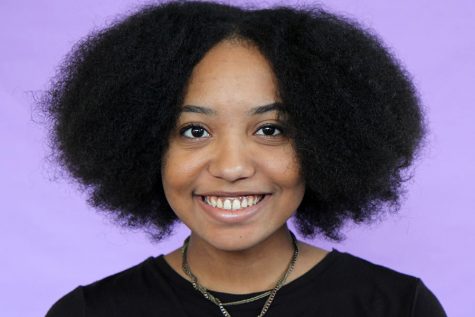
@mperezEHS_hub
This is Perez's third year on staff where she serves as a reporter for the Hub. One word to describe her: independent. Perez is involved...


